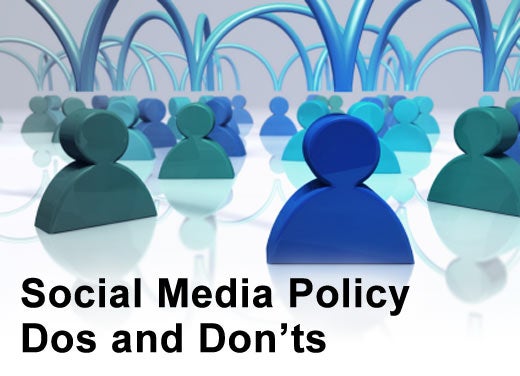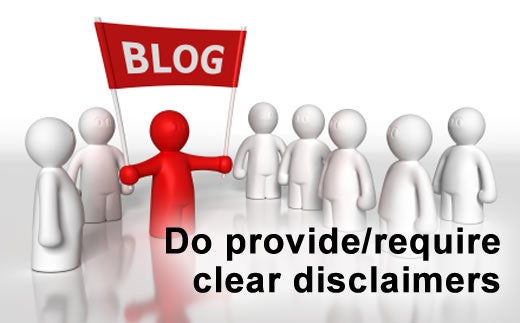A good social media policy is like good art. It’s often hard to explain, but you know it when you see it, which makes it pretty frustrating for companies trying to create policies for their employees. Many of the experts we’ve interviewed have told us the purpose of social media policies is to get folks to use good common sense. So, um, don’t put proprietary information in your Facebook status updates. Don’t get too snarky with your tweets.
The key to a good social-media policy is finding the right balance for your company. That’ll likely depend a lot on your specific corporate culture and your industry. It’s safe to say a lot of companies won’t be comfortable with Zappos’ seven-word policy: Be real and use your best judgment. But many will find social-media guidelines like those issued by Dow Jones to be too restrictive.
Perhaps the most important thing to remember about a social-media policy is to communicate it clearly and ask employees to sign off on it. And of course, all social-media policies should be consistently enforced.
In this slideshow, you’ll find a list of points that you should at least consider while crafting your company’s social media policy – even if you decide some of them do not need to be directly addressed in the final document.
For more guidance and to save lots of time, check out these helpful social media policy tools available as free downloads from the IT Business Edge Knowledge Network.
- Baker and Daniels Social Media Policy
- Social Media Policy
- Social Networking Policy PowerPoint
- Sample Social Networking Policy
Click through for tips to consider when establishing a social media policy.
Social media users should never place proprietary information on their Facebook pages or Twitter about projects on which they’re currently working.
Users shouldn’t post or link to materials that are defamatory, harassing or indecent. Nor should they post pictures, notes or other info that will cast them in a bad light or reflect poorly on their ability to do their job.
Social networking policies are often dictated in part by the industry in which the company operates and how regulated that industry is. For example, employees at hospitals or clinics have access to very personal information with regard to patients, and that information must be safeguarded in order to comply with the Health Insurance Portability and Accountability Act and to protect patients’ privacy rights. Thus, a social networking policy that prevents employees from posting specifics about patients and their conditions is in order.
Employees should avoid promoting personal projects, causes or opinions via the company media portals.
Personal blogs should have clear disclaimers that the views expressed by the author in the blog are the author’s alone and do not represent the views of the company. The same applies should a situation arise where a personal opinion is posted via the company’s social media channels.
Personal blogging, Twittering, and other social media activities should be kept to a minimum and not interfere with work commitments.
Users should not reference or cite company clients, partners or customers without their express consent. Third-party copyrights should also be respected.
Once the policy is created, employers should communicate it to employees. Post it in the break room, include it in the employee handbook, distribute it separately in a memo or a letter. And have employees sign to acknowledge that they’ve received it and read it. After the policy has been created and communicated, it must be consistently enforced. It does no good to have a policy if some violations have consequences and others do not.











